A world without Down's syndrome?
- Published
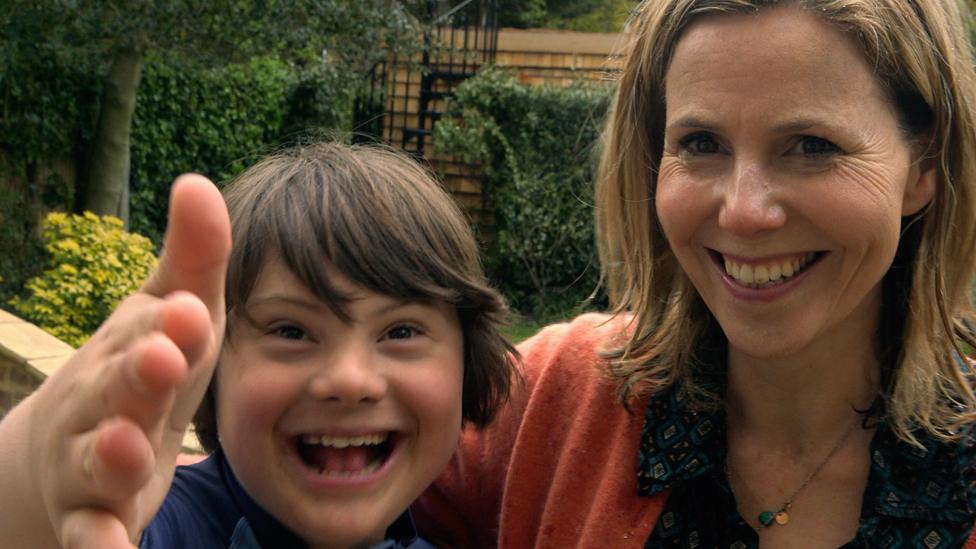
Ninety per cent of people in the UK who know their child will be born with Down's syndrome have an abortion - so there are concerns a new, highly accurate test to identify babies with the condition, will lead to even more terminations.
"The doctor said to us: 'I'm sorry, I'm so sorry.' The nurse on duty cried. I don't think anyone said anything at all positive," says Sally Phillips. "It wouldn't have been any different if they'd told me my child wasn't going to make it."
Her son, Olly, was 10 days old, when he was tested for Down's syndrome - the results came back positive. But Phillips - the actress and screenwriter best known for her roles in Miranda and Bridget Jones - found life with a child with Down's syndrome was not what the hushed tones and apologies had led her to expect
"I was told it was a tragedy and actually it's a comedy. It's like a sitcom where something appears to go wrong but there's nothing bad at the end of it."
She describes life in her family as "just slightly funnier than in other families," thanks to Olly, who is now 12 and goes to a mainstream secondary school. She also has two younger children, neither of whom have Down's.
"Having Olly in my life has changed me and my family for the better. He has slightly worse impulse control but that means that it's very funny because he's often saying exactly what everybody's thinking but is too shy to say.
"He's also incredibly caring. He's the only one of my three kids who every single day will ask me how my day was. He's really kind. He's really focused on other people. He's really gifted emotionally. He'll notice if people are upset when I won't."

Find out more
Meet Sally and Olly
Sally Phillips explores the issues around the new prenatal test in A World Without Down's Syndrome at 21:00 on Wednesday 5 October on BBC Two.

In the UK, about 750 babies are born with Down's syndrome every year and there are an estimated 40,000 people in the country living with the condition.
Most people have 23 pairs of chromosomes, but people with Down's have an extra copy of chromosome 21, which means they develop differently and have varying levels of learning disability. Some children with Down's have few health problems, but certain medical complications - such as heart, gut, hearing, or thyroid conditions - are more common in people with Down's.
The current NHS screening, external, which is offered to all pregnant women, gives an indication of the likelihood that a baby will have Down's. If the foetus has the condition, there is an 85% to 90% chance that the existing test will pick it up, but about 2.5% of positive results are false and these babies don't have Down's.
At the moment, the next step is amniocentesis or CVS (chorionic villus sampling), the only diagnostic tests that can definitively show whether a baby has Down's syndrome. Both of these tests are invasive - a needle is used to take a sample of the fluid surrounding the baby or cells from the placenta - and come with a risk of miscarriage. It's a risk some women are not willing to take.
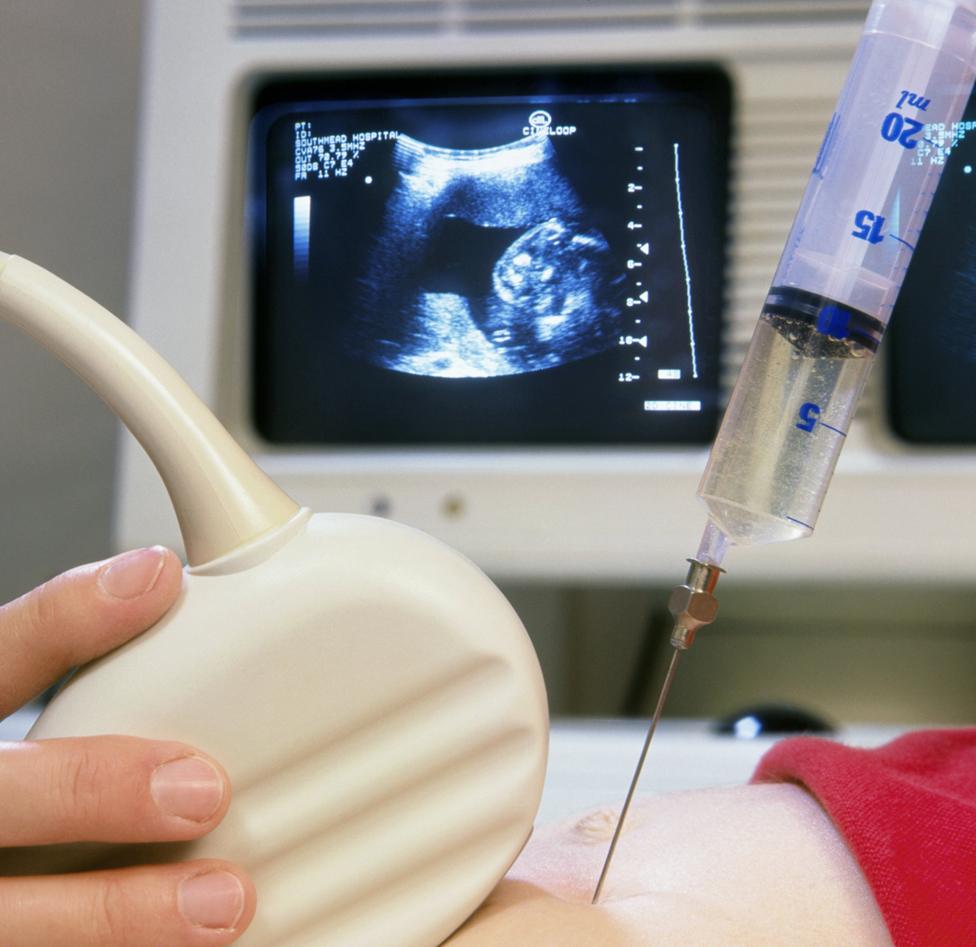
Amniocentesis is usually guided by ultrasound
This is where NIPT - the new non-invasive prenatal blood test - comes in. It could soon be offered to women as an extra, second step in the screening process. It is 99% accurate and carries no risk of miscarriage.
So the false positives will be identified earlier and fewer invasive tests carried out.
That sounds good - but some people, including Sally Phillips, worry it will mean that more foetuses with Down's will be identified and aborted.
NIPT is already available in private clinics. One woman in her 20s who used it to find out that her baby had Down's syndrome met up with Phillips to talk about her experience.
After a positive NIPT test she went ahead with an invasive test which confirmed the result.
It was her first pregnancy. Unsure of what life for the child would be like, she and her partner did some research online looking at news reports, videos of people with Down's and support group websites.
"Rather than the clinical research and a doctor saying, 'This is what it will look like,' what I was more interested in was family stories," she says. They found a lot of positive and inspirational testimonies, but some were troubling.
"There were blogs by mums so you see some of the difficulties that people are going through. There was one woman, her five-year-old's still not walking and he's very heavy and she's having to deal with him having fits everywhere," she says.
"If my child was affected as much as he was I would feel really guilty about that having been given the choice. Even the best case scenario isn't what I want for my son."
So she and her partner decided to end the pregnancy. "We felt that was the best thing for the baby," she says.
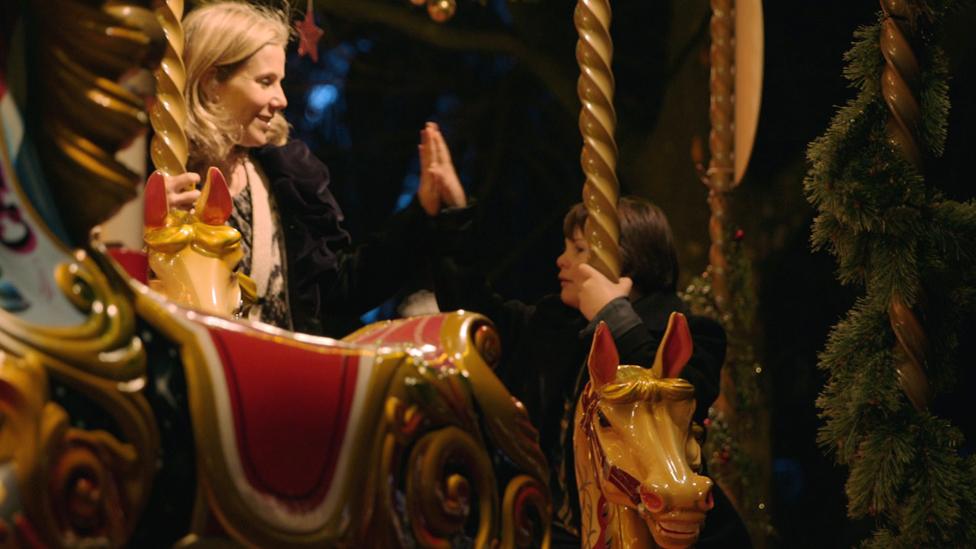
For Phillips it can be difficult to accept that someone doesn't want a child like hers.
And she is worried that her son will grow up in a world where more parents choose not to give birth to babies diagnosed with the condition. She gives the example of Iceland, where almost everyone screens for Down's and 100% of women who have a positive diagnosis now terminate.
Icelandic photographer Sigga Ella, whose aunt had the condition, took a series of portraits, external of people with Down's to raise awareness of the Down's community there.
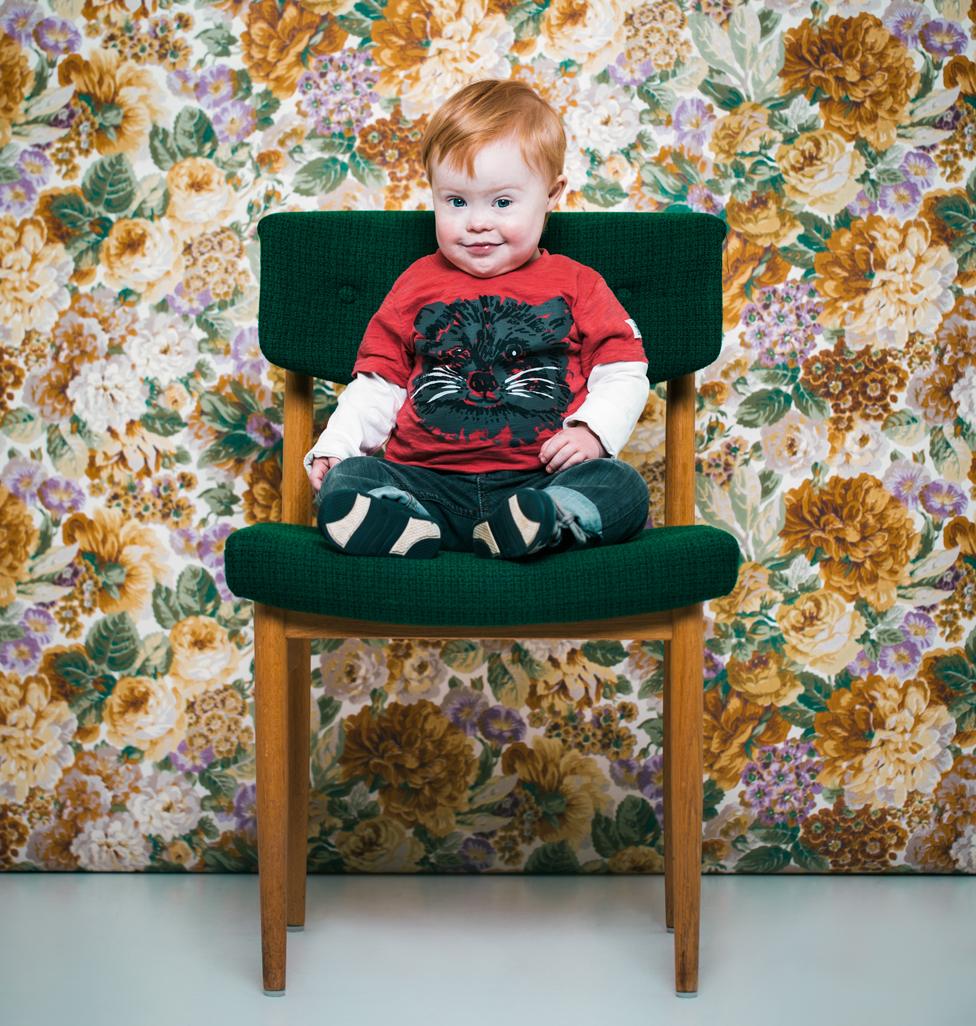
Jakob

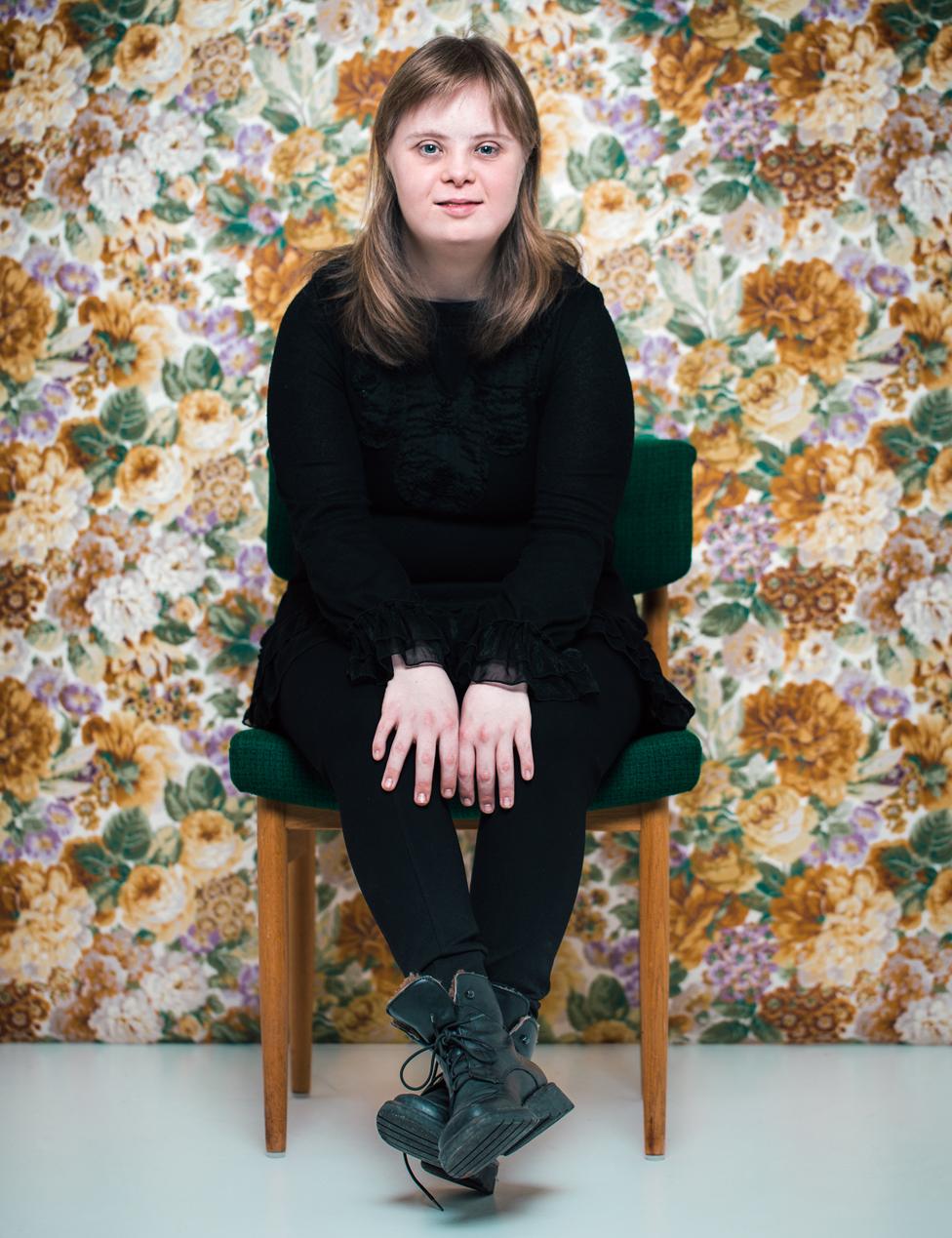
Halldora

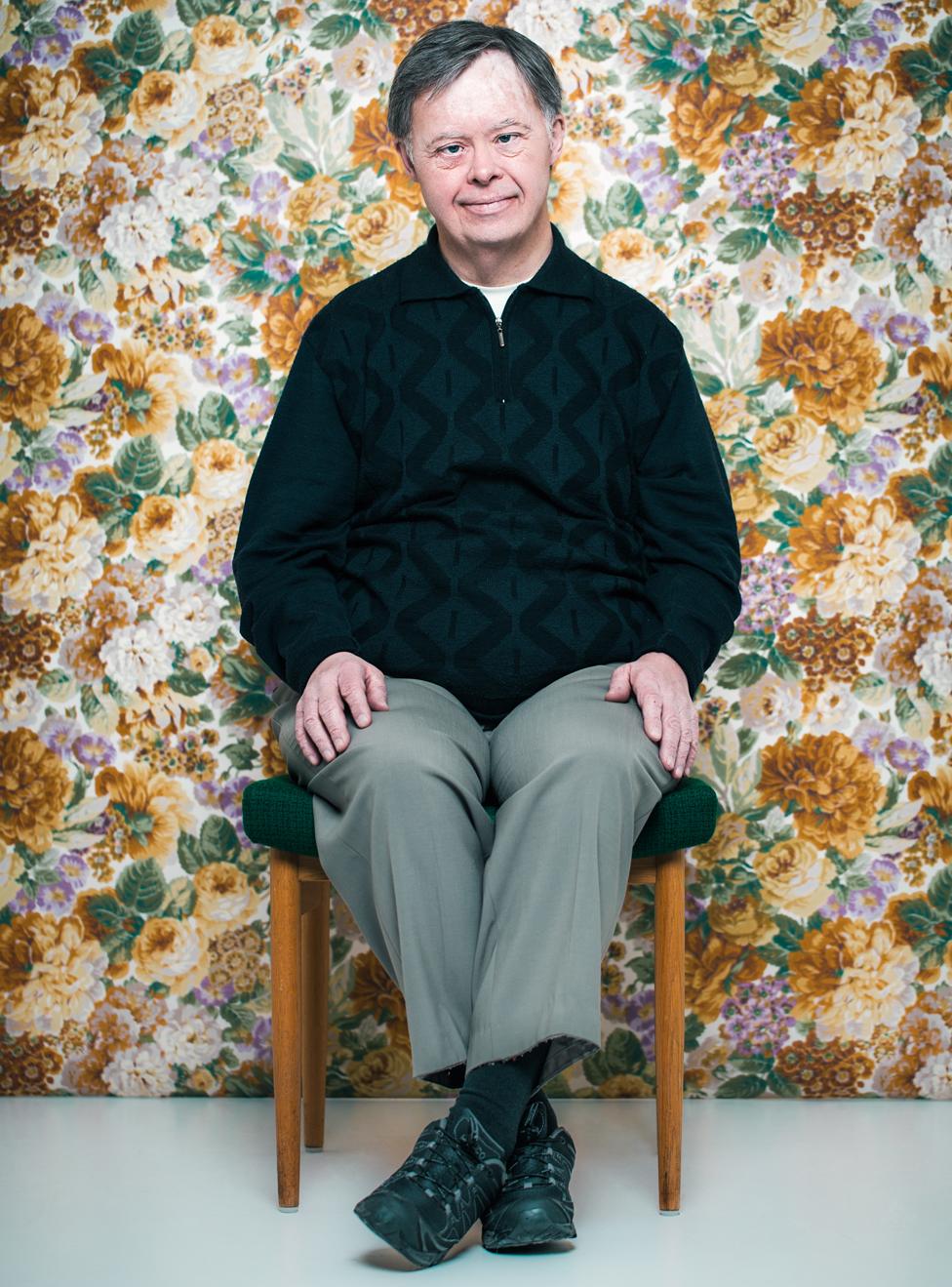
Birta
But in the UK about a third of pregnant women opt out of screening, so if that remains the case, any of these babies who have Down's will continue to go undetected until they are born.
In the UK the new test is being developed by Lyn Chitty at Great Ormond Street Hospital - professor of genetics and foetal medicine.
She carried out a study to see what women do when they are offered NIPT. Based on this research she believes that an extra 195 babies with Down's could be diagnosed in England and Wales each year before birth.
But even though 90% of women in the UK with a positive Down's diagnosis have abortions, she doesn't believe it means most of these 195 pregnancies will be terminated.
"I really do not think that we are going to be screening out Down's syndrome," she says. "I find it quite distressing. I had a journalist phone me up and say 'You're going to annihilate Down's.' Well, I don't think that's going to happen.
"The trouble is everybody's looking at hypothetical scenarios, they're looking at 'what if' situations.
"We found that a lot of women were using the NIPT test to find out whether their baby's got Down's syndrome, inform themselves and carry on with the pregnancy. If you look at our statistics, external it will not significantly change the live birth rate."
The statistics relating to terminations are complex and interpreted differently by each side of the debate. But all experts agree that the way a diagnosis of Down's syndrome is presented can influence whether parents choose to continue with the pregnancy.
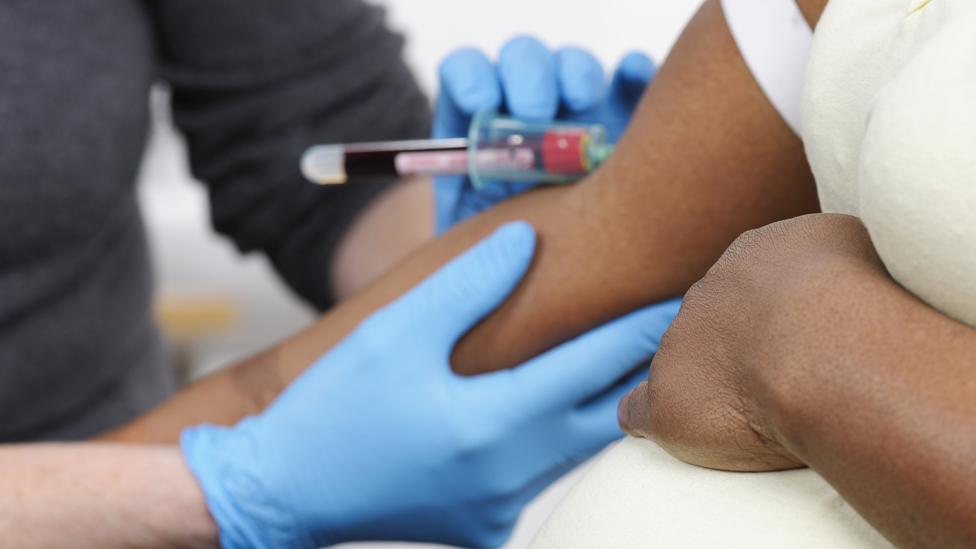
"The whole essence of a good screening programme is the counselling you have before you even have the blood test done or the scan done," says Alan Cameron, foetal medicine consultant at Queen Elizabeth Hospital in Glasgow.
"You've got to be given an educated choice, but certainly my experience is that much fewer women would terminate now than they ever did before because I think things are better… people see Down's kids having good, healthy, lives, working in the community, you see kids around with Down's syndrome that are doing a good job."
In the early 1980s life expectancy for a child born with Down's was 25 years, but today it's about 60, with some living into their 70s. And a report published in 2014, external shows how employers can benefit from hiring staff with Down's.
Screening has never been a case of "let's try and eradicate Down's syndrome from the population," says Cameron. "That's never been the mission... It was all on the back of women's choice."
He admits, though, that while medics have long considered the ethics and consequences of screening among themselves, they haven't been very good at discussing this with their patients and the public.
This is where the Nuffield Council on Bioethics, external comes in. While the government gets ready to announce the roll-out of NIPT across the NHS, the council has been speaking to scientists, doctors, policy makers, people with Down's and their families to assess what impact it could have.
"There has been screening for Down's Syndrome for decades, so in terms of the enterprise of offering women informed choice NIPT doesn't really change that," says Tom Shakespeare, chairman of the Nuffield working group, which plans to publish its report in February.
But it does open the door to testing for other conditions.
"It could be used by people who have a single gene condition, like cystic fibrosis or muscular dystrophy or achondroplasia - my own condition," he says.
"Ultimately you could have whole genome sequencing so you could test that sample for everything - it's the next step and because NIPT is non-invasive you're not going to risk the foetus."
And for him, like Sally Phillips, it comes back to how results and information are given to prospective parents.
"I support the option of screening for those that want it but it needs to be on the basis of good quality information - why are prospective parents not being given the full information about Down's syndrome?"
"It's not just about trisomy 21 (Down's syndrome) or risk of intellectual disability - it's also about what are people's lives like? What barriers do they face? Do they suffer? If you're potentially having a baby with a condition, that's what you want to know - how will it affect my family? How will it affect my child? How will it affect their life? How much of a problem is it?"
These are questions the new blood test is not able to answer.

Karen Gaffney, external is a 38 year-old American woman with Down's syndrome. Last year she gave a TED talk on why her life matters. This is an edited version of her speech - you can watch the full version here, external.
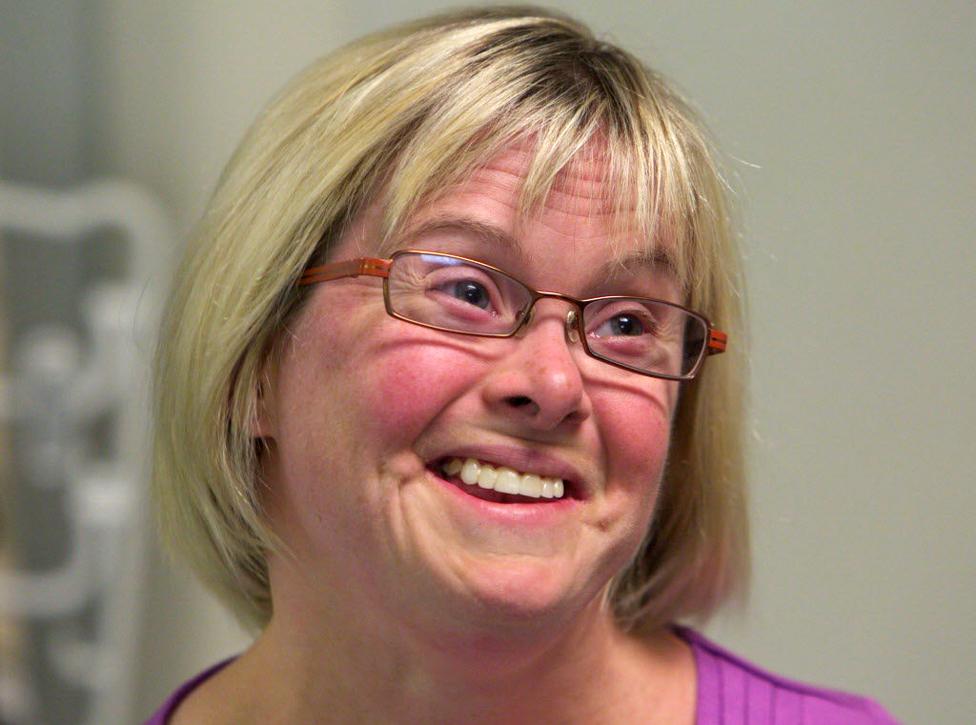
I would like to start by telling you about my fifth grade teacher. It was her first year of teaching when I showed up in her class. She didn't know anything about Down syndrome but that didn't matter, because she knew I wanted to learn, and she wanted to teach. She and I have stayed in touch. A few years ago, I got a special letter from her - she told me that she was pregnant and she needed my help, because her baby would be born with Down syndrome!
She pushed back on any discussion of termination because she knew Down syndrome from a completely different perspective than her doctor did. She taught him about her fifth grade student... me!
There was a time when people like me were institutionalised. When I was born, the doctor predicted that I would be lucky to be able to tie my own shoes or write my own name - he forgot to mention the part about me swimming the English Channel.
We have begun to see more and more young people with Down syndrome graduating from high schools, some going on to higher education and learning employable skills. There are accomplished musicians, artists, golfers, models, actors and public speakers, as well as good employees making significant contributions to their companies and communities. These are all role models for what can be done in spite of one extra chromosome.
It's far from perfect, though, breakthroughs haven't come for everyone and we still have battles to fight for inclusion.
And it seems the race is on to find newer, faster ways to test for that extra chromosome before birth - the problem is without timely and accurate information, about all our progress, if the test shows an extra chromosome, pregnancies are being terminated. We have those who say we shouldn't even be born at all.
I believe Down syndrome is a life worth saying yes to. Every life matters regardless of the number of chromosomes we have.
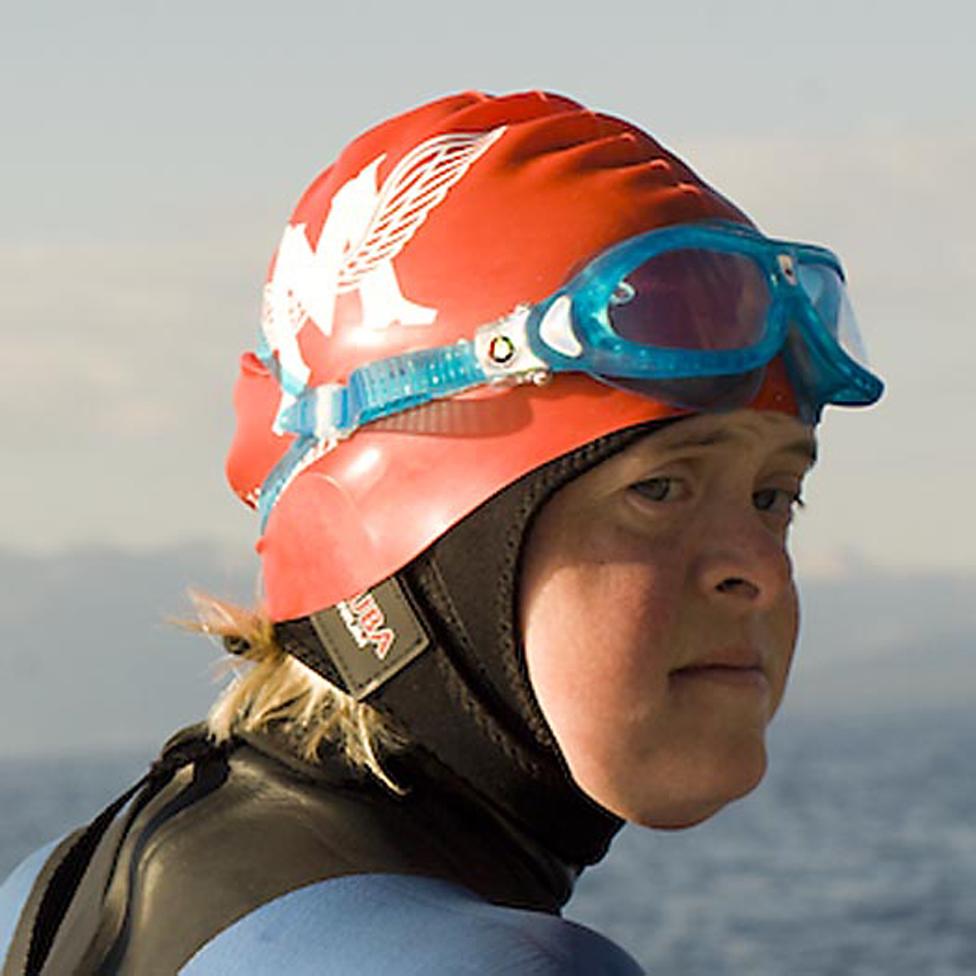
Karen Gaffney before a nine-mile swim across Lake Tahoe

Join the conversation - find us on Facebook, external, Instagram, external, Snapchat , externaland Twitter, external.